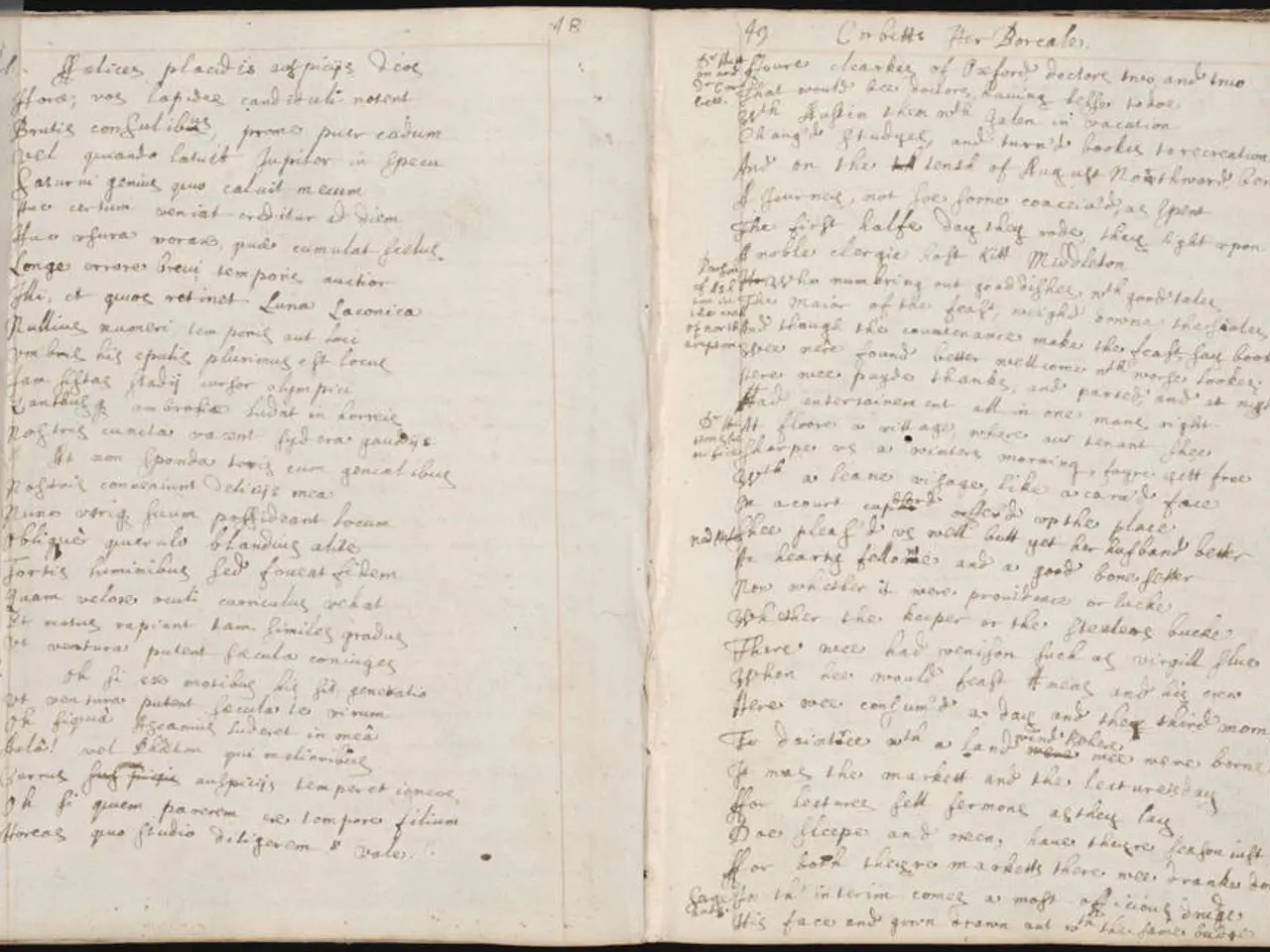Daily operation of autonomous bus on Lake Bärwalder, accompanied by a human driver
### Autonomous Bus Service Debuts in Rural Baerwalder See and Science Harbor Magdeburg
In a significant stride towards modernizing public transport, an autonomous bus has begun operating in the semi-rural areas of Baerwalder See and Science Harbor Magdeburg. This innovative development is part of a broader research project aimed at improving local connectivity and enhancing mobility solutions in rural environments.
Germany, a frontrunner in autonomous vehicle (AV) adoption, is home to over 50 cities approving AV testing zones and initiatives led by automotive and technology firms[1]. The Baerwalder See project represents one such initiative, focusing on the deployment of Level 4 autonomous driving capabilities in a small, electric bus.
The bus, named "EZ10," started its service on July 4, 2025, and operates between the stops "Klitten Bahnhof" and "Klitten Bärwalder See Skanpark"[2]. The four-kilometer route takes approximately 20 minutes to cover, running daily between 9 am and 5 pm[3]. Passengers can enjoy a free ride during the test phase and are encouraged to provide feedback to contribute to the project's success.
Operating an autonomous bus in rural areas presents unique challenges, such as longer distances between stops, limited digital infrastructure, and variable road conditions[1]. To address these issues, the project employs intelligent fleet and charging management systems, optimizing operations and ensuring safety, reliability, and cost-effectiveness[1].
The research project for the autonomous bus in Magdeburg is a collaboration between TU Dresden, the Fraunhofer Institute Zittau, and the Zweckverband Verkehrsverbund Oberlausitz-Niederschlesien (ZVON)[4]. This collaboration aims to improve the bus's sensors through ongoing research, with human intervention required in certain driving situations such as turning or changing lanes[5].
The University of Magdeburg is also part of a cross-border research project for intelligent traffic solutions and autonomous driving in Europe[6]. As the bus continues to operate under real conditions in Magdeburg, it represents a significant step towards scaling rural autonomous transport solutions, improving local transit, and offering sustainable, flexible, and reliable service in rural areas like Baerwalder See.
[1] https://www.transport-online.de/news/autonomes-betrieb-in-burgenlandkreis-ist-vorangekommen [2] https://www.morgenpost.de/magdeburg/stadt-magdeburg/article253148188/Autonomes-Bus-fahrt-ab-Heute-in-Magdeburg.html [3] https://www.morgenpost.de/magdeburg/stadt-magdeburg/article253148188/Autonomes-Bus-fahrt-ab-Heute-in-Magdeburg.html [4] https://www.morgenpost.de/magdeburg/stadt-magdeburg/article253148188/Autonomes-Bus-fahrt-ab-Heute-in-Magdeburg.html [5] https://www.morgenpost.de/magdeburg/stadt-magdeburg/article253148188/Autonomes-Bus-fahrt-ab-Heute-in-Magdeburg.html [6] https://www.uni-magdeburg.de/presse/pressemitteilungen/2022/03/25/europaweite-forschungsprojekte-fuer-intelligente-verkehrslosungen-und-autonomes-fahren-starten [7] https://www.youtube.com/watch?v=xKd-Q8KZQzQ (Video: "Ghost ride: Autonomous bus starts to bring tourists to Baerwalder See")
- The autonomous bus debut in rural Baerwalder See and Science Harbor Magdeburg reflects the nation's interest in advancing the transportation industry, with a focus on finance and technology in the development of electric vehicles.
- The operation of an autonomous vehicle in a rural environment like Baerwalder See also serves to upgrade the public-transit sector, fostering a more modern lifestyle and offering sustainable mobility solutions.
- Autonomous driving innovation in Germany extends beyond urban areas, as demonstrated by the collaboration between TU Dresden, Fraunhofer Institute Zittau, and Zweckverband Verkehrsverbund Oberlausitz-Niederschlesien (ZVON) to improve rural transportation systems.
- This initiative supports the vision of enhancing local connectivity in various landscapes, ultimately bridging the gap between technology and automotive sectors for a more efficient and reliable transportation system.
- The deployment of the "EZ10" bus in Baerwalder See represents an essential step towards adopting cutting-edge transportation solutions, demonstrating the potential of electric vehicles in shaping the future of public transit within rural areas.




